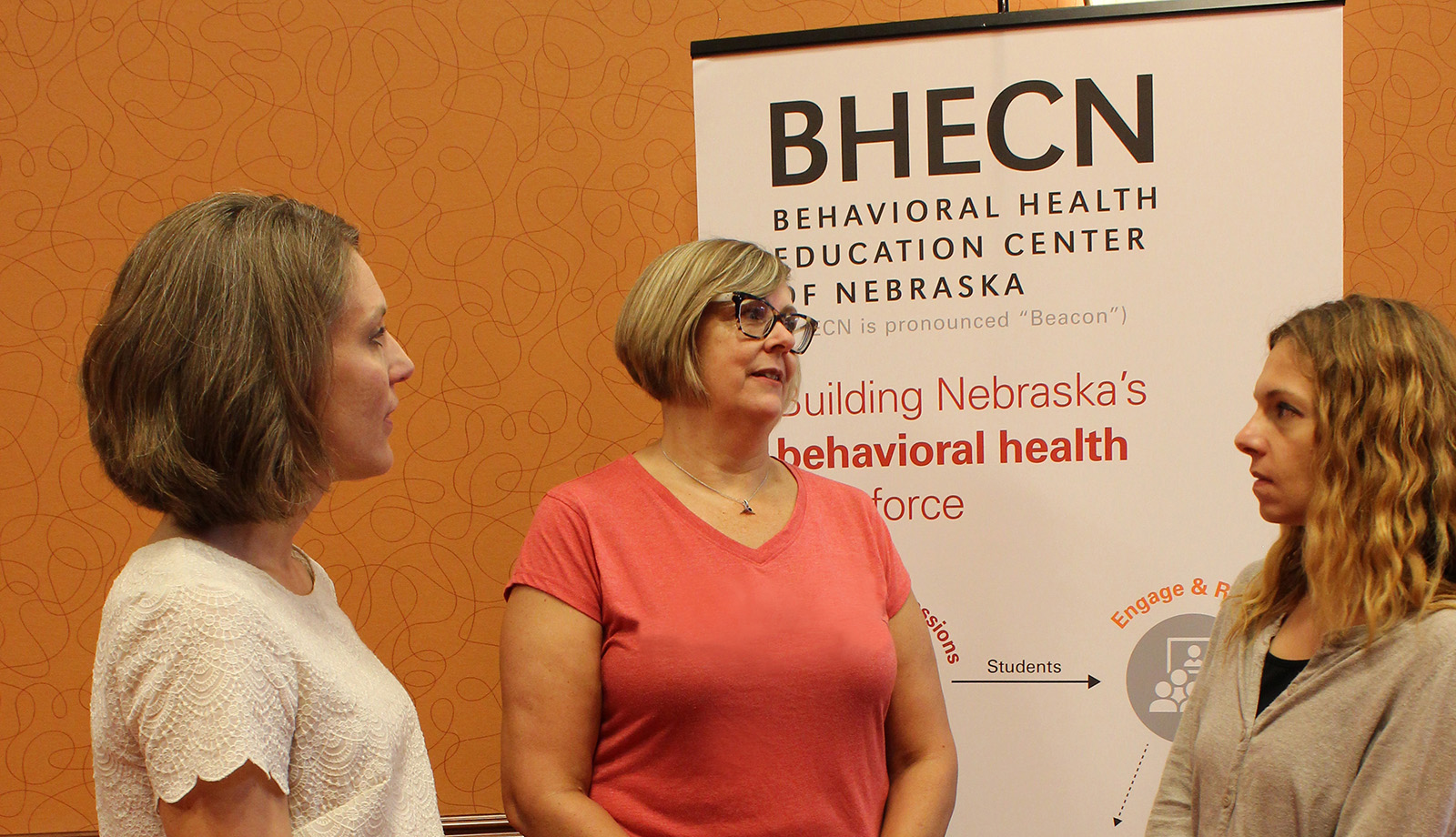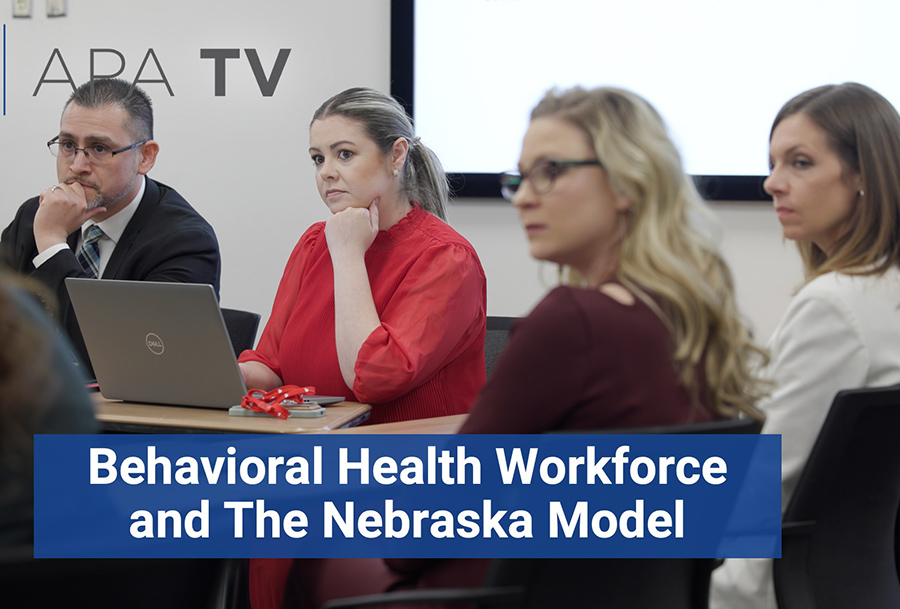
The Nebraska Model
The Nebraska Model is a comprehensive behavioral health workforce development model that consists of the following components:
- Career Awareness: Inform students about behavioral health careers.
- Career Preparation: Provide support and guidance to students interested in behavioral health careers.
- Training Experiences: Financial support of undergraduate, graduate and post-graduate behavioral health trainees.
- Professional Support: Free continuing education for licensed behavioral health providers.
- Workforce Research: Tracking the behavioral health workforce and reporting on trends.
- Outreach: Engagement with academic, community and workforce leaders across the state.
BHECN Legislative Report takes a close look at the Nebraska Model
The 2024-2025 BHECN Legislative Report explores how the Nebraska Model connects students to careers in behavioral health, trainees with opportunities for licensure, professionals to resources that help them thrive in their careers, state leaders with data that informs sound behavioral health policies, and the community with a stronger behavioral health workforce.

The Nebraska Model Webinar Series
Innovative Recruitment Strategies for Behavioral Health Careers
This webinar discusses recruitment strategies that are essential to enhance behavioral health pathways for a successful career while addressing the shortage of this specialty in rural communities.
Retaining Behavioral Health Professionals
Explore a multifaceted outreach program for professionals derived by BHECN to illustrate the dimensional efforts from exemplary behavioral health professionals in the state.
Using Data to Support the Behavioral Health Workforce
Hear about the trends in the behavioral health workforce and analyze new data endeavors to better understand timely challenges facing the field.
How State Policies Support the Behavioral Health Workforce
This webinar will describe how to leverage policy solutions to recruit, train, and retain the behavioral health workforce, as exemplified by the creation of BHECN in the Nebraska state legislature in 2009.
Unique Considerations for Rural Behavioral Health Workforce Development
Learn how to overcome the unique challenges of rural practice and how to address these obstacles utilizing satellite locations based on BHECN's programming within rural Nebraska.
